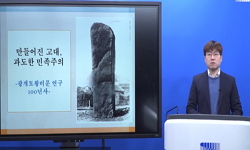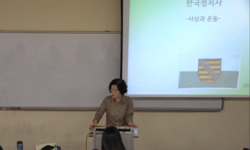본 논문에서는 인도네시아와 말레이시아의 사례를 중심으로 1997년 경제위기 이후 같은 외부적 충격에 대응하는 방식에 있어 국가 간 차이를 보이는 이유에 대해서 기존의 경제적 논리의 분...
http://chineseinput.net/에서 pinyin(병음)방식으로 중국어를 변환할 수 있습니다.
변환된 중국어를 복사하여 사용하시면 됩니다.
- 中文 을 입력하시려면 zhongwen을 입력하시고 space를누르시면됩니다.
- 北京 을 입력하시려면 beijing을 입력하시고 space를 누르시면 됩니다.
부가정보
국문 초록 (Abstract)
본 논문에서는 인도네시아와 말레이시아의 사례를 중심으로 1997년 경제위기 이후 같은 외부적 충격에 대응하는 방식에 있어 국가 간 차이를 보이는 이유에 대해서 기존의 경제적 논리의 분석틀을 벗어나 종교, 이데올로기적 차원에서 접근해 보고자 하였다. 인도네시아와 말레이시아는 같은 이슬람 국가임에도 불구하고 경제위기에 대한 대응방식에 있어 상당히 상이한 모습을 보인다. 정치적, 경제적 정책의 성격 및 변화의 양상 및 더 나아가 정치권력 변동이 비경제적 요소라 할 수 있는 민족주의 및 이슬람적 담론에 의해 영향을 받고 있음을 알 수 있다.
다국어 초록 (Multilingual Abstract)
Following the non-economic approach, in this paper, we examine how Indonesia and Malaysia response to the economic crisis in 1997-1998 in perspective of religious and ideological way based on the Islam. Also we look into the reason of the difference b...
Following the non-economic approach, in this paper, we examine how Indonesia and Malaysia response to the economic crisis in 1997-1998 in perspective of religious and ideological way based on the Islam. Also we look into the reason of the difference between two countries after the economic crisis. Indonesia and Malaysia are even though the same Muslim countries, the economic crisis has got quite a different way. Political, economic policy and response, and further political power fluctuation seemed to be affected by the non-economic factors such as nationalism and Islam discourse after the economic crisis.
동일학술지(권/호) 다른 논문
-
The Importance of Teaching Culture in the EFL Classroom
- 부산 외국어 대학교
- 정윤걸
- 2011
-
- 부산 외국어 대학교
- 임동우
- 2011
-
- 부산 외국어 대학교
- 이기철, 이현주
- 2011
-
- 부산 외국어 대학교
- 김종덕
- 2011




 RISS
RISS







